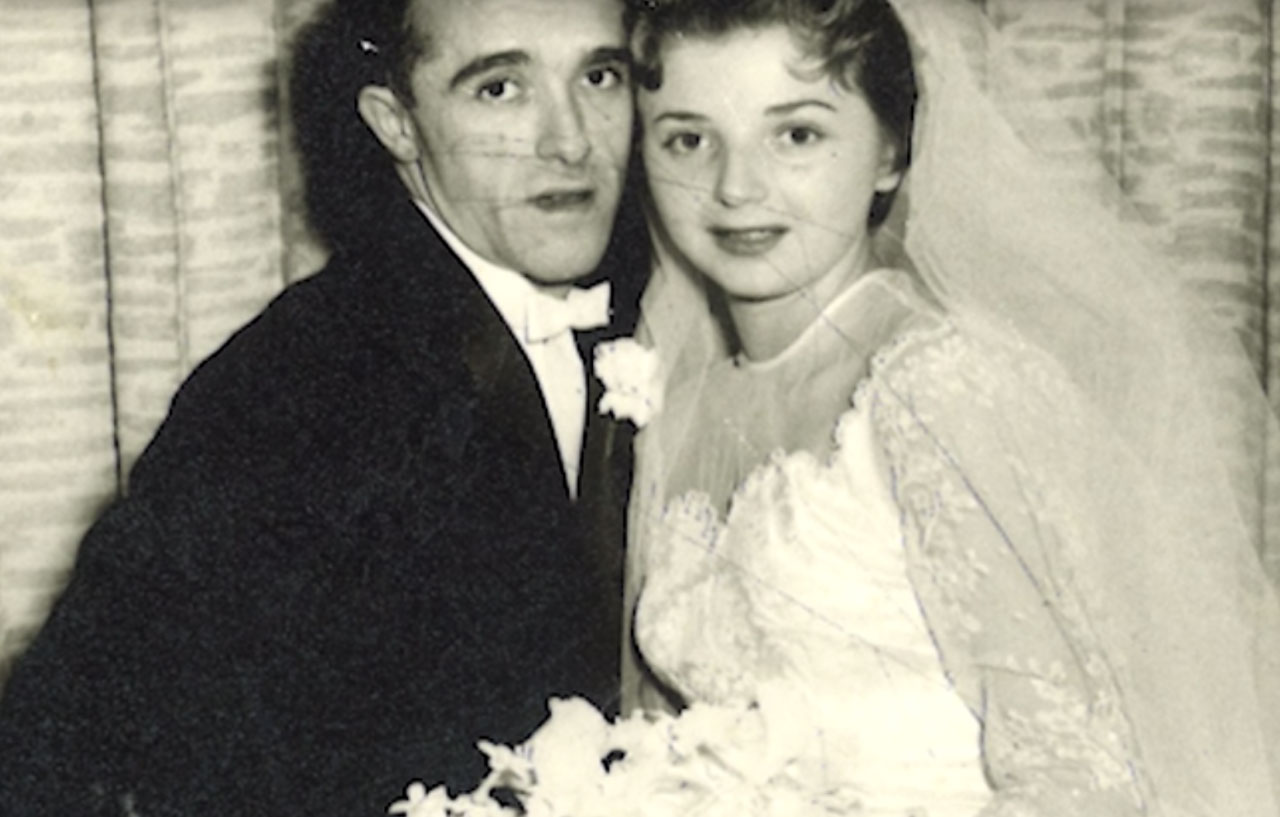
The Marriage of Rose and Arthur Gelbart: A Holocaust Survivor Love Story
This article was contributed by Kate Gaddis, UHCL alum and former Signal staff member.
The Holocaust can bring survivors together, and in the case of Arthur and Rose Gelbart, their love story stretches beyond that.
Arthur’s story begins on March 25, 1932 in Klobuck, Poland. He was the third of four children. Arthur had three sisters: Anne, Esther and Francis. They lived in a little house his father had built. When the Second World War broke out, he was ten years old. He had only three years of schooling at that point. He was very good in school, but he did not like his teachers. He said “In the town there were five Rabbis and I was thrown out by the other four.”
In 1941, Arthur’s family were deported to a Ghetto. They were then sent to the Blechhammer, a sub-camp of Auschwitz, where they remained from 1943 to January 1945.
Arthur did much hard labor before he was sent on a death march to Buchenwald in January 1945.
When Arthur arrived in the United States in 1947, he was drafted into the Armed Forces. In the late 50’s, he was introduced to Rose Grosman on a blind date.

Rose’s story is a little different from Arthur’s. She was born Rozia Grosman on January 3, 1935 in Leszno, Poland. She was the only child to Josef and Sabina Grosman. Her father was a shoemaker. With the war beginning in September 1939, Rose was only three year old. She said that she remembered when the Germans began bombing Poland. Her family were on the run and when the Germans dropped bombs, her uncle grabbed her and fled into a ditch, covering himself over her.
They moved to Kalisz, Poland. She said it was a beautiful city and they lived in an apartment. They lived on the second floor. She had her own bedroom. It was a very large apartment.
When they were moved to the ghetto in Rzeszow, her mother, who did not look Jewish was able to take her daughter out of the ghetto and find hiding places for the youngster.
As Rose told me, she felt that she was losing her own identity. She did not understand why people were chasing her, or calling her ‘dirty Jew’. When she was in hiding places, she could not call her mother, “mother.” She had to call her mother, “Aunt” or other names, but never “mother.”
She never understood why any of this was happening to her.
When she was finally liberated and stopped running, she was sent to a boarding school in Switzerland until her visa to the United States was ready. She emigrated to the United States in 1951. She arrived at Ellis Island in New York. She did not stay there long. She loved New York, but the family boarded a train and headed to Cleveland, Ohio.
She began working in a bakery. She was working when a friend told her she needed to meet a young Jewish man who was in the army. The man was Arthur Gelbart. They went on a blind date, and as they say the rest is history. They were married November 5, 1955. Arthur was twenty-seven and Rose was twenty-one.
There is a six year age difference between them. Arthur turns ninety-three this year.
They have two sons, Jerry and Michael. Both are in the medical field, Jerry is in psychology and Michael is a trauma therapist.
Michael said that his parents did not talk about their Holocaust experiences when he was growing up, but they gave him the best childhood they could have.
Between the two children, they have children of their own, which gave Rose and Arthur grandchildren. Michael’s son, Gavriel “Gavi” got a tattoo of Arthur’s tattoo that he received while in the camp. Arthur was very honored by Gavi doing this in honor of him.
The Gelbarts shared their stories in the documentary special “The Hate We Can’t Forget” that aired on International Holocaust Remembrance Day January 27, 2022.
Rose and Arthur have been married for almost sixty-seven years. It’s amazing that through their grief and loss, they can find common ground in love.
When I talk to Rose, I always feel that warmth and love. She spreads it all around with everyone she meets.
I have been very fortunate to know Rose, Arthur and their son, Michael. What a lovely family they are. Rose’s story is mentioned in the book 10 True Tales, Young Survivors of the Holocaust by Allan Zullo. Rose’s photo is on the front.
Rose and Arthur still live in Ohio today and enjoy their love together. They are survivors, which makes them important people in history. They speak to schools, congregations and to museums.
They are important people and should be treated as such.
